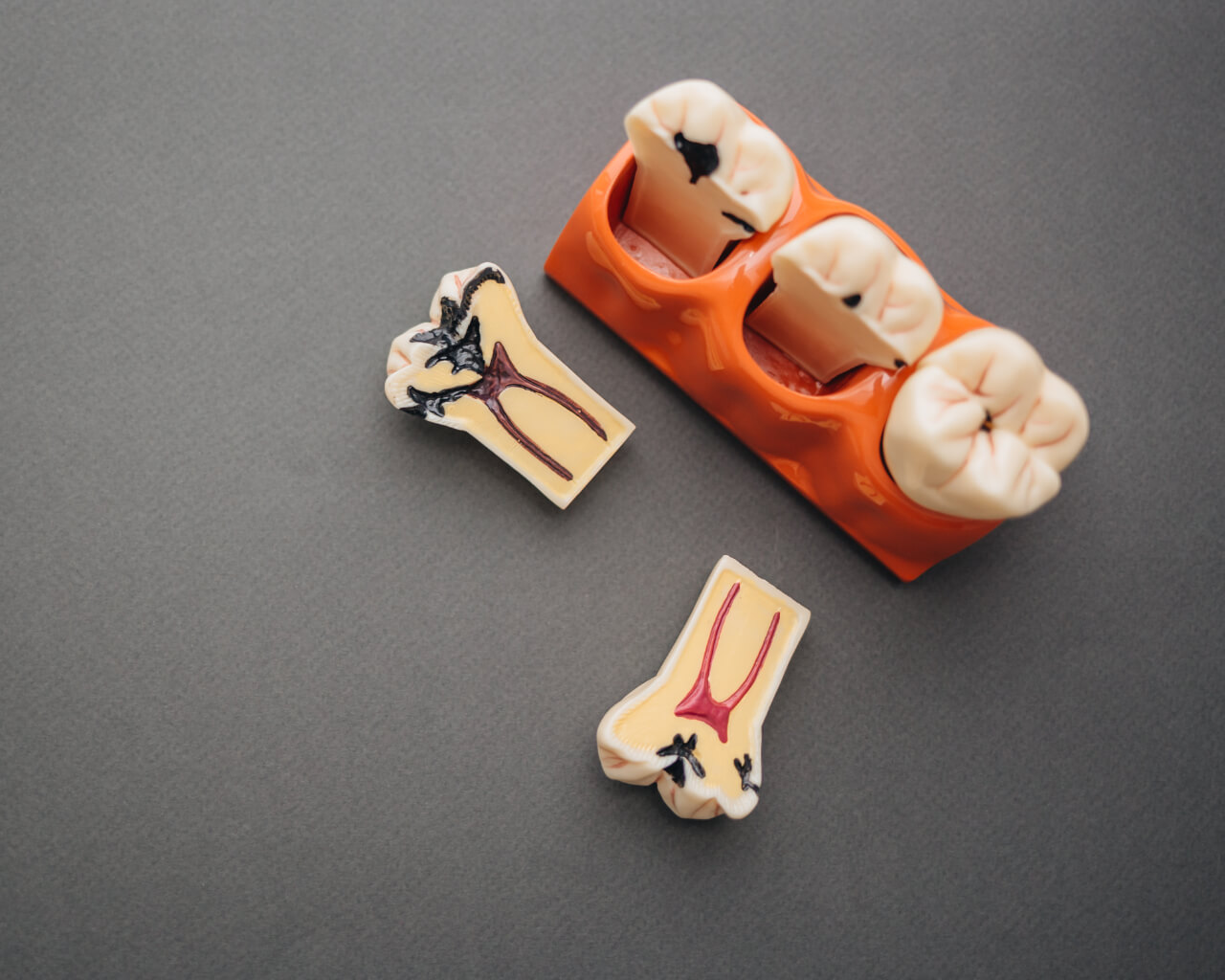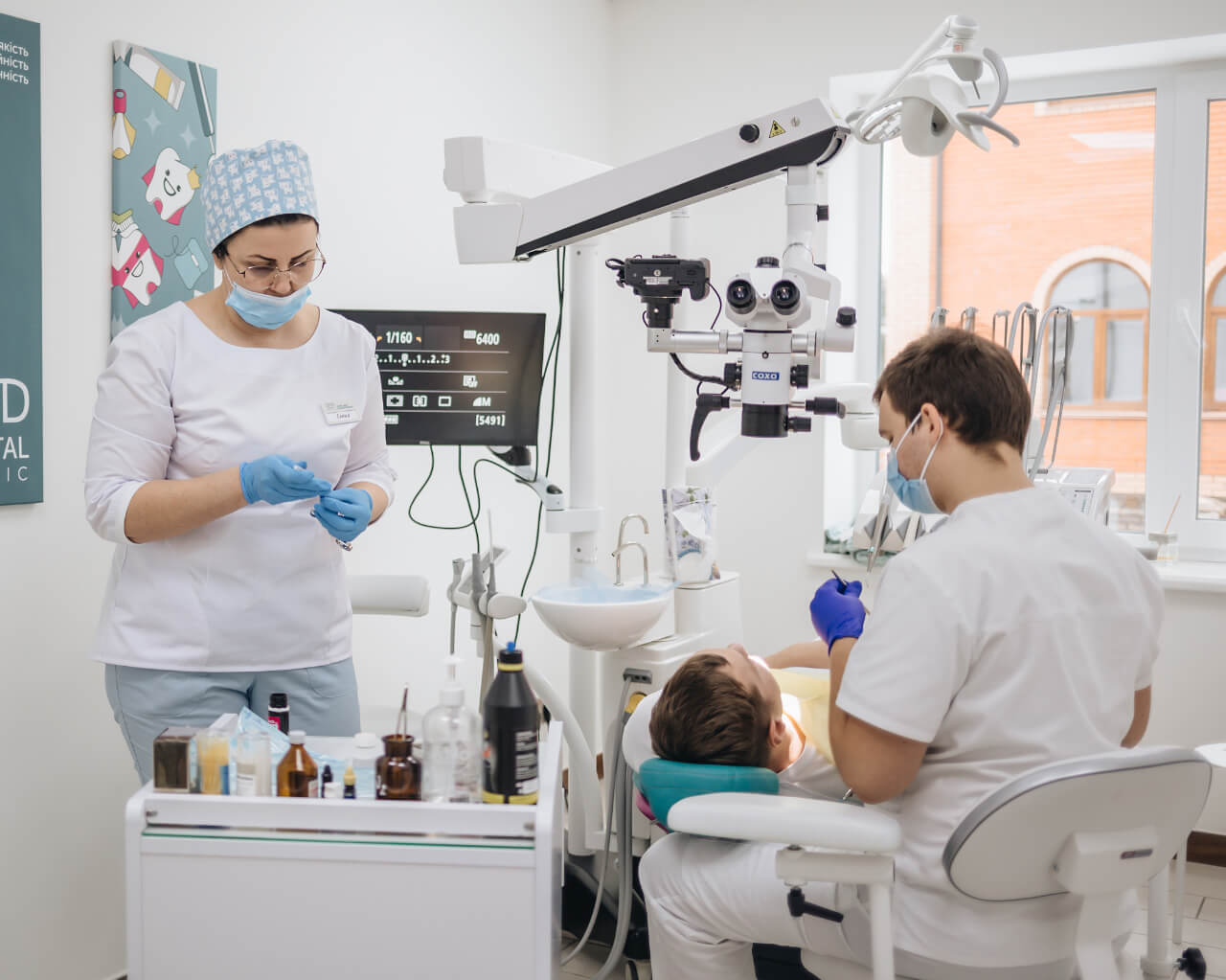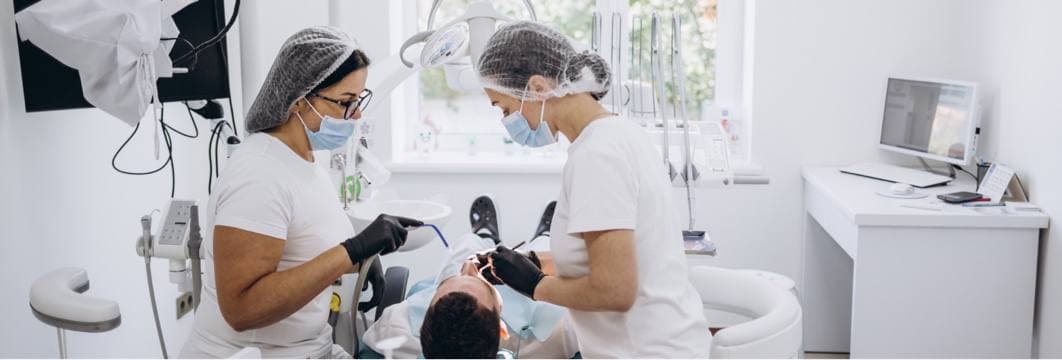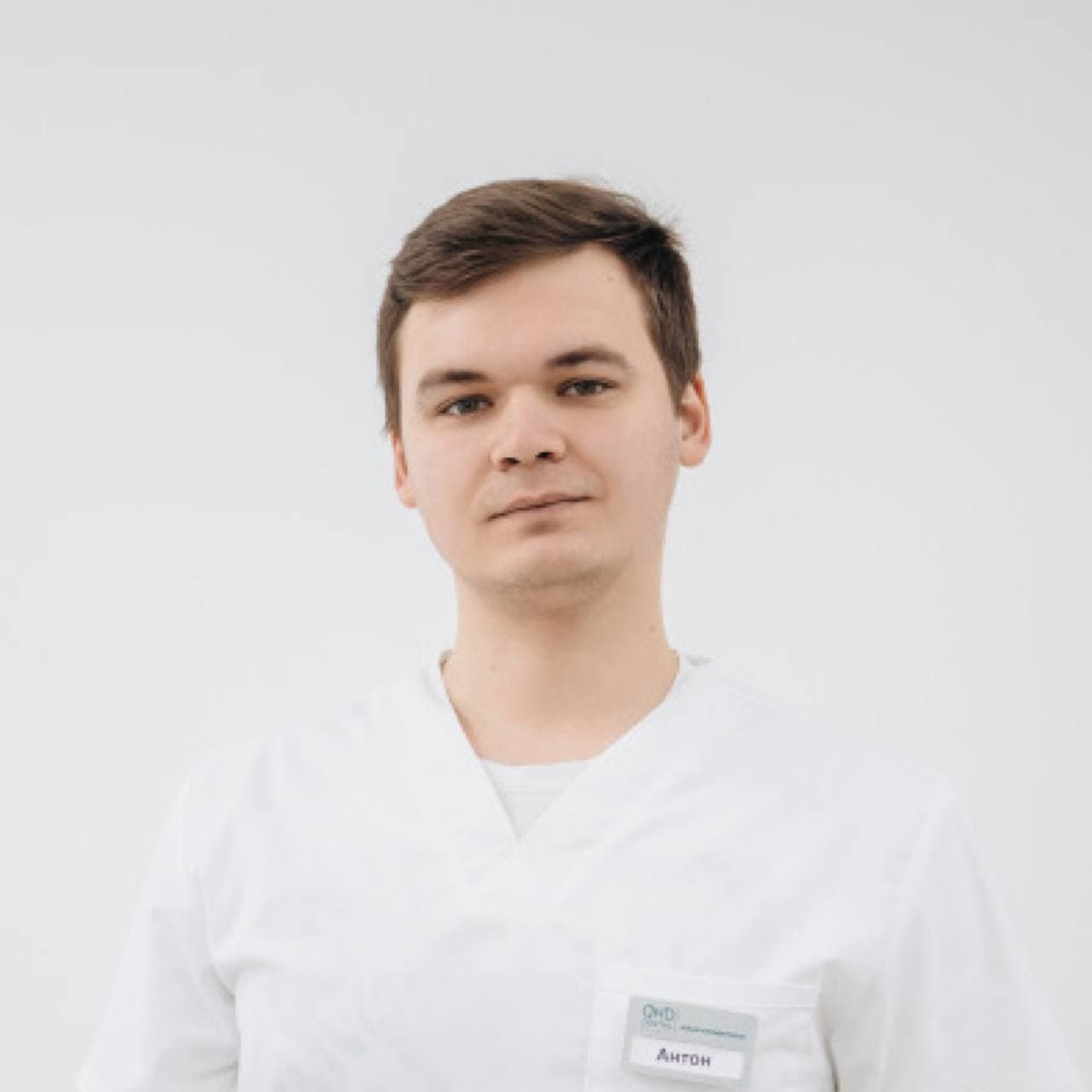Tooth cyst removal
What is a tooth cyst

“Cyst” of the tooth, or as it is customary to say now: “Apical periodontitis” – this
disease of the bone tissue around the root of the tooth with its subsequent destruction and formation of granulation (soft inflammatory, highly vascularized) tissue.
A dental cyst is a fluid-filled sac that forms around a tooth. Dental cysts are relatively common and can occur at any age. Although they are usually painless, they can damage the surrounding teeth and jawbone if left untreated.
There are two main types of dental cysts: radicular cysts and maxillary cysts. Radicular cysts form around the root of the tooth, and maxillofacial cysts form around the crown (visible part) of the tooth. Both types of cysts are usually benign (not cancerous). However, in isolated cases, they may be associated with oral cancer.
Often, a tooth cyst does not manifest itself for a long period of time and can be detected after a diagnostic appointment or on a panoramic image of the jaw. However, in some cases, the following symptoms may indicate the presence of a disease such as a tooth cyst:
- swelling or soreness in the gums
- aching pain when biting or chewing
- bad breath
If you experience any of these symptoms, see your dentist for a checkup. Early diagnosis and treatment of a dental cyst is important to prevent further damage to the surrounding teeth and structures.
Causes of the appearance of cysts
The etiology (cause) of the cyst (“apical periodontitis”) is pathological microflora in the lumen of the tooth root.
Most often, a tooth cyst occurs as a result of:
Infections. Bacteria can enter the tooth through a crack or cavity and cause an infection that leads to a tooth cyst. Advanced caries, untreated pulpitis, or periodontitis are common causes of cysts at the apex of the root.
Injuries A cyst may form in a broken or damaged tooth.
Poor root canal treatment.
Developmental pathologies of the upper or lower jaw.
Chronic infectious diseases of the oral cavity and nasopharynx can also be the cause.
If you have been diagnosed with a tooth cyst, you should not be upset. In the QRD Dental clinic, we will conduct the treatment quickly and painlessly, and most importantly, with the observance of global treatment protocols and the use of modern digital technology. The operated tooth will be able to last quite a long time without other diseases and with proper oral hygiene.
The process of removing a tooth cyst in the QRD Dental clinic

Removal of a tooth cyst in the QRD Dental clinic consists of the following stages:
Diagnostics: images, photographs, computer tomography, measurement of periodontal pockets. A positive result of treatment depends on qualitatively performed diagnostic measures.
Analgesia Usually, the operation is performed under local anesthesia, which is currently sufficient to make everything painless. In modern stomatology, such as QRD Dental, they pay enough attention to the patient’s comfort during the treatment. In our clinic, in addition to anesthesia, medicated sleep can be used, because many patients can hardly tolerate even a simple tooth extraction, feeling fear.
Access: A gingival incision is made and a small window is drilled in the bone to gain access to the apex of the root and allow for resection.
Direct resection of the apex of the tooth root.
Cleaning and sealing of the canal from the reverse side with a biocompatible material.
Suturing the wound.
Next, the dentist will give recommendations for the care of the operated tooth. In any case, we are always in touch, and in the event of unpleasant sensations or questions in the postoperative period, the patient can always contact us and receive the necessary informational support.
After removing a tooth cyst, it is important to follow the rules of oral hygiene and regularly visit the dentist for preventive examinations.
Advantages of tooth cyst removal before implantation
Many patients are interested in the question of whether it is better to remove a tooth and place an implant? As a rule, everything depends on the condition of the teeth. If it is in good condition (there are tissues), then your own organ is always better than an artificial substitute. If the tooth is very questionable, has repeatedly undergone medical procedures, including root canal filling, if there is progressive caries, then an implant is better.
An experienced dentist will inform the patient of all possible treatment options during the consultation and will select the most effective option.
One of the advantages of apical surgery before implantation is timing. The operation is performed in one visit lasting 1-2 hours, and you leave with the same whole tooth in your mouth as it was. Also, the cost of the operation is usually 2-3 times less than the cost of an implant with a crown.
The term of functioning of the operated tooth depends on its strength and is unlimited. The ideal option is a lifetime. There are enough examples where teeth perform their function for decades.
If you have any questions about tooth cyst removal or would like to make an appointment, please contact us in any convenient way. We will be happy to answer your questions and help you get the treatment you need.





Leave a Reply